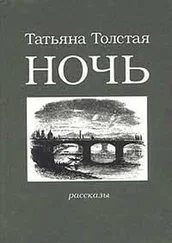—
So, in this way, the purpose of the Day of Judgment is to create a new church, since the present one is finished, it is no good, it’s mired in hypocrisy—in other words, this is a spiritual Day of Judgment. Which, by the way, doesn’t preclude people from living the way they had been living; they do have freedom of choice.
But what is there beyond the grave? What’s there? Here’s what, according to Swedenborg: When a person dies, he doesn’t notice it at first, but just keeps on living as before, working from his office, riding in carriages, visiting friends. The only difference is that everything around him becomes brighter, his senses become keener. Then benevolent spirits pay him a visit (spirits, as it turns out, are simply underdeveloped angels), and they gently guide him to the realization that he’s no more. Dead. That he himself is in the realm of the spirits. At first he does not believe it. Then he looks around and—Why, yes, it’s true. And he keeps on living until he figures out, with the discreet aid of heavenly helpers, where to go from here.
Three kingdoms make up the afterworld: the heavens (which, in turn, are made up of three layers and a multitude of “societies”); the realm of the spirits; and the realm of the underworld (since hell is multifaceted and multitudinous). Where one goes is determined by a person’s spiritual merit, but it’s not so simple. For instance, sinners do not duly burn in flames, but instead rather enjoy the stench and the wretchedness that surrounds them; sinning made them happy in life and it makes them happy in the afterlife as well. The stench in hell is stupendous, but as everything is to be taken allegorically, this miasma is spiritual.
Correspondingly, the heavens are also constructed in a complex hierarchal manner. The angels, who are simply former people, are sorted by their ability to love God and to completely deny self-love—that is, to rid themselves of hubris, and not take credit for anything. They are further sorted by interests. The “celestial angels,” the heavenly elite, engage in exquisite intellectual discussions; the lower angels aren’t interested, nor able to participate, and should they happen to approach a VIP, so to speak, they would begin to feel suffocated by these discussions and find relief in returning to their accustomed level.
The realm of the spirits is situated between those of the heavens and the hells; its inhabitants, depending on how they stack up vis-à-vis God, grace, and divine truth, have a chance to migrate either up or down. But, once again, wherever they end up they don’t suffer, each one settling where their heart desires. The heavens are insufferable and stifling to sinners—sinners don’t require goodness, so they don’t envy it. Similarly, the saints aren’t jealous of those highest angels from the third-innermost layer of the heavens; supreme levels of love for God aren’t open to them, they are simply out of their reach.
The closer to God, the more interior the heavens are. First and foremost, to achieve the highest place in the celestial hierarchy, man must believe in divine nature, and believe that all goodness and truth come from it, all wisdom and comprehension; he must desire to be ruled by it. That’s when the aforementioned allegories, or correspondences, will show themselves in all their glory: a supreme angel and believer will feel himself to be living in a palace of indescribable beauty, walking among trees and flowers that are likewise indescribable. All of Swedenborg’s attempts at finding words to depict such flora resulted in jewelry clichés: “golden tree trunks,” “silver leaves”—you’d expect more from a professor of mineralogy, let alone from God.
The only condition for redemption is the voluntarily mandatory, so to speak, cooperation with God, for God compels no one. He only makes an offer. But if man refuses this offer, God will turn away from him. All the heavens together constitute one man. It’s clear now why the New Jerusalem is the New Heaven: obviously, feeble present-day humans are worthless, their faith is hypocritical, just for show while they wallow in sin. It’s time for a change.
In general, Swedenborg’s treatise is frightfully dull and righteous. Some life is breathed into it by certain not-so-incidental particulars of arrangements in the heavenly kingdom; for instance, the angels can marry, and not necessarily their earthly spouses, but lady friends who suit their tastes; love, however, exists only in matrimony and there’s no funny business. For what joy is there in realizing that your faithful wife is merely an allegory, just like your desk, or a palace sparkling with precious stones, or flower beds every color of the rainbow? As far as Protestantism goes, Swedenborg’s vision/treatise presents some heresy, but of the virtuous kind: Calvin, Luther, and Melanchthon all taught justification and salvation by faith alone ( sola fide ), but Swedenborg gently insists that, no, it’s not enough. You need good works, you need mercy. He was a lovely old man, kind and modest. In London, during the days of his nocturnal visions, he’d often order meat dishes sent up to his room, only to return them untouched. He would explain to the proprietor of the inn that these had been ordered for the spirits visiting him to chat. They didn’t eat anything, but they did inhale the pot roast aroma with great pleasure.
Out of modesty, and a fear of becoming famous, lest he find himself enjoying that fame, and thus becoming proud and arrogant, he initially published his works anonymously, as mentioned; but he was found out, and soon members of Swedish society started going on excursions to gawk at him. He had a house, and a garden with mirrors placed at the intersections of the paths in such a way that you could see all the flowers of all the allées at once—how sweet! He also played the organ and gave his guests raisins as treats.
He was adored by the nobility and by the king. (Here one should probably note—just for purposes of edification—that in Sweden, the king and the nobles traditionally belonged to different parties. The king was supported by the peasantry, while the nobles restrained any absolutist impulses of his by means of the parliament.) They viewed Swedenborg as a harmless loon. This is noteworthy: Grandpa was a heretic, he’d lost his mind—imagined himself to be a prophet, conversed with spirits—and yet no one buried him alive, no one burned him at the stake, no one chased him barefoot and in chains north of the Arctic Circle. In a letter, one distinguished gentleman, writing to another, details the heretical eccentricities of the elderly professor: allegedly the apostles visit him, and angels move his quill as he writes. And he urges: Let’s stifle a smile, let’s not hurt the old man’s feelings. Whoa! “Stifle a smile”? Not “Let’s rip his nostrils and whip him”? Yet Swedenborg still accuses the Swedes of depravity! “As a nation, the Swedes are the worst of Europe, after the Italians and the Russians,” he writes.
We’re biased by the familiar imagery from the Middle East: we expect a prophet to be woolly haired and dusty footed, in torn rags and with no sense of humor; the rich and famous can expect only rudeness and threats from him. Emanuel Swedenborg, on the other hand, was pleasant to all, a respected member of society despite his prophetic peculiarities. For his scientific endeavors he received a title and the surname Swedenborg (his father’s name had been simply Swedberg). A rich man, he insisted, can enter God’s kingdom just as easily as a pauper; the most important thing is love for God, blah blah blah, you know the rest. A pagan can be better than a Christian. Africans are closer to God than civilized Europeans, being more simpleminded and kind. Unbaptized infants aren’t guilty of anything and so they will reach heaven with the right schooling. If ancient prophets subsisted on locusts and wild honey, occasionally afflicting themselves with hunger and thirst, our guy drank tea and supersweet coffee with pastries, and he loved almonds, raisins, and chocolate. After God had scared the bejeezus out of him at that London inn, he never again touched meat, but he did not deprive himself of sweets. For social outings, he favored a lavender-hued velvet jacket, paired with a vest of black silk and shoes with gold buckles. His face was pale, his mouth wide.
Читать дальше






